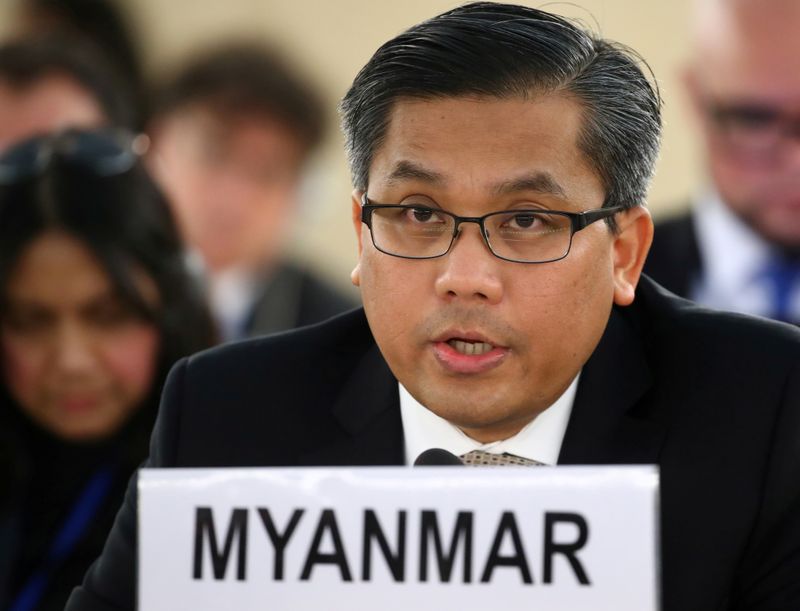By Michelle Nichols
NEW YORK (Reuters) - A committee of ousted civilian lawmakers in Myanmar is looking at whether it can ask the International Criminal Court (ICC) to investigate any crimes against humanity committed following the Feb. 1 military coup, Myanmar's U.N. envoy said on Thursday.
Kyaw Moe Tun said the Committee Representing Pyidaungsu Hluttaw (CRPH), which is attempting to reestablish the civilian government and displace the military, is exploring ways people can be held accountable for violence following the coup.
"The ICC is one of them," Kyaw Moe Tun told an event with Columbia University's Institute for the Study of Human Rights. "We are not a state party to the ICC, but we need to... explore the ways and means to bring the case to the ICC."
Myanmar has been in crisis since the army ousted leader Aung San Suu Kyi's government in a coup, citing a November election that it called fraudulent. It has detained her and officials of her National League for Democracy party and set up a ruling junta of generals.
Security forces have used increasingly violent tactics to suppress daily demonstrations, and thousands of people have been detained. Some 217 have been killed, according to the Assistance Association for Political Prisoners activist group.
Independent United Nations human rights investigator Thomas Andrews told the U.N. Human Rights Council in Geneva last week that the Myanmar military had committed killings, torture and persecution that may constitute crimes against humanity.
A junta spokesman has said the security forces have used force only when necessary.
Myanmar is not a member of the ICC. However, the CRPH has been looking closely at article 12.3 of the Rome Statute that created the court, said Kyaw Moe Tun. Under that article, Myanmar could lodge a declaration with the court registrar to "accept the exercise of jurisdiction by the court with respect to the crime in question."
Such a move would likely spark a debate over who is recognized internationally as the government of Myanmar.
Kyaw Moe Tun, who publicly broke with the junta in a speech to the U.N. General Assembly last month, and U.N. special envoy on Myanmar, Christine Schraner Burgener, have said that no country should recognize or legitimize the Myanmar junta.

The U.N. Security Council can also refer situations to the Hague-based ICC, although veto-powers Russia and China would be unlikely to support such a move on Myanmar.